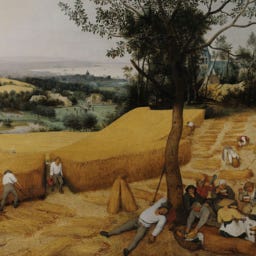
Saved by Ian Vanagas
“Context is that which is scarce”

Saved by Ian Vanagas
I worry about what this means, long term, for our propensity to seek out context, or our ability to understand context at all. Given that all of the issues that face us demand an understanding of complexity, interrelationship, and nuance, the ability to seek and understand context is nothing less than a collective survival skill.
Alex Wittenberg added
sari and added

sari and added
sari added

Alex Wittenberg and added
Sarah Drinkwater added
“Having a shared set of narratives, concepts, and symbols is the basis, ultimately, for all culture — religious, national, ethnic, commercial, scientific, etc. How can you operate in biology if you’re not familiar with Darwin? How can you operate in tech if you’re not fluent in Aggregation Theory? You can’t. Even if you think the ideas are wrong, i... See more
Agalia Tan added
you have to find the environment where these reference points become common